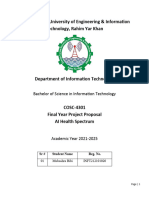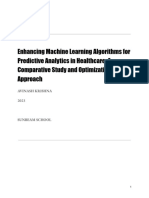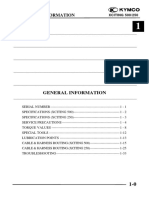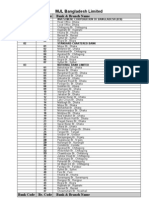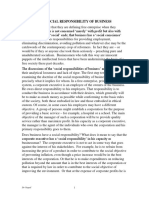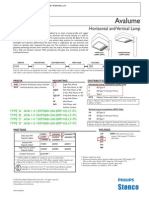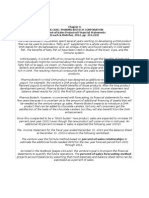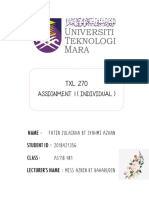0% found this document useful (0 votes)
28 views4 pagesReportml
The document outlines a proposed project to develop an AI-driven predictive system for healthcare. The project aims to leverage diverse healthcare datasets to train machine learning models to accurately predict healthcare outcomes, such as disease diagnosis and patient prognosis. The models will employ techniques like natural language processing to analyze clinical notes. The goal is to create an interpretable system that can support clinical decision making and personalized care.
Uploaded by
PHANINDRA KANIGELPULACopyright
© © All Rights Reserved
We take content rights seriously. If you suspect this is your content, claim it here.
Available Formats
Download as PDF, TXT or read online on Scribd
0% found this document useful (0 votes)
28 views4 pagesReportml
The document outlines a proposed project to develop an AI-driven predictive system for healthcare. The project aims to leverage diverse healthcare datasets to train machine learning models to accurately predict healthcare outcomes, such as disease diagnosis and patient prognosis. The models will employ techniques like natural language processing to analyze clinical notes. The goal is to create an interpretable system that can support clinical decision making and personalized care.
Uploaded by
PHANINDRA KANIGELPULACopyright
© © All Rights Reserved
We take content rights seriously. If you suspect this is your content, claim it here.
Available Formats
Download as PDF, TXT or read online on Scribd
/ 4





